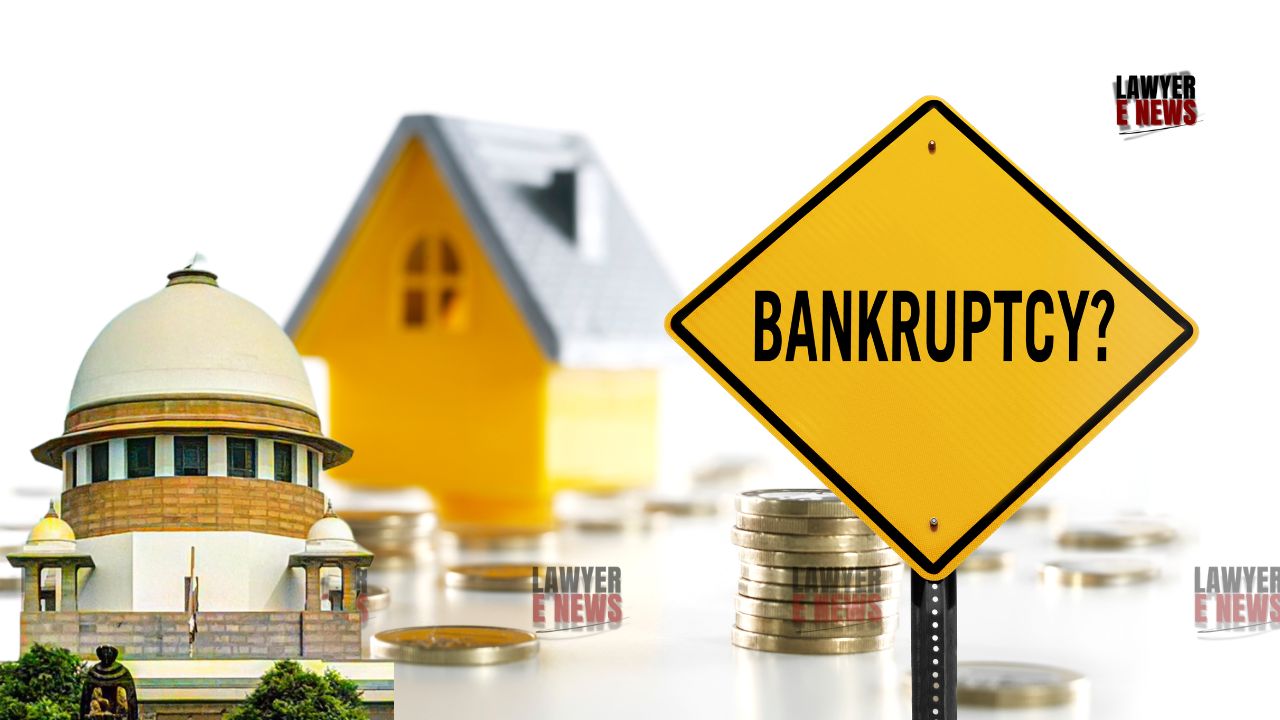-
by Admin
15 February 2026 5:35 AM



Supreme Court of India delivered a significant ruling in the case of GLAS Trust Company LLC v. Board of Control for Cricket in India (BCCI) & Ors., setting aside the National Company Law Appellate Tribunal (NCLAT)'s approval of a settlement that led to the withdrawal of the Corporate Insolvency Resolution Process (CIRP) against Think and Learn Pvt. Ltd. (BYJU's).
The case centered on the NCLAT's exercise of its inherent powers under Rule 11 of the NCLAT Rules, 2016 to approve a settlement between BYJU's and BCCI, an operational creditor, while objections from a financial creditor, GLAS Trust Company LLC, were pending.
Court’s Critique: NCLAT's Bypassing of IBC's Structured Withdrawal Mechanism
The Supreme Court observed that the NCLAT invoked its inherent powers to approve the settlement, despite the existence of a detailed legal framework under the Insolvency and Bankruptcy Code (IBC), 2016, particularly Section 12A and Regulation 30A of the CIRP Regulations. These provisions outline the procedure for withdrawal of CIRP after admission, including the requirement to approach the NCLT through the Interim Resolution Professional (IRP) and to seek approval from the Committee of Creditors (CoC).
The court held, “The NCLAT should not have exercised its inherent powers under Rule 11 of the NCLAT Rules when a detailed statutory framework existed for withdrawal post-admission of the insolvency petition. The correct legal course was to follow the procedure laid down under Section 12A and Regulation 30A.”
The case arose after BCCI filed a petition under Section 9 of the IBC for non-payment of dues of Rs 158 crore by BYJU’s under a sponsorship agreement. The National Company Law Tribunal (NCLT), Bengaluru admitted the petition, initiating CIRP on July 16, 2024. Simultaneously, GLAS Trust Company LLC, a financial creditor, had filed a petition under Section 7 for a loan default amounting to USD 1.2 billion by BYJU's subsidiary, Byju's Alpha Inc., for which BYJU's was a guarantor.
As the insolvency process was underway, BYJU's, through its former director Riju Raveendran, negotiated a settlement with BCCI, which included payments from personal funds to settle the dues. NCLAT approved the settlement on August 2, 2024, under its inherent powers, bypassing the statutory framework.
Objections from GLAS Trust Company LLC
GLAS Trust Company LLC, representing the interests of financial creditors, objected to the settlement on various grounds, including:
The source of funds used for the settlement, claiming it may have violated a restraining order from the Delaware Bankruptcy Court.
The settlement with one operational creditor (BCCI) could prejudice the rights of other creditors, especially since the CoC had not been constituted at the time of settlement.
The settlement could amount to a preferential payment, which is against the collective process of the CIRP that considers the interests of all creditors.
The Supreme Court upheld these objections and directed the parties to follow the statutory process for withdrawal under Section 12A of the IBC.
Delaware Court's Parallel Proceedings
The Delaware Court had passed orders related to the misuse of funds by BYJU’s subsidiary, Byju's Alpha Inc., including a preliminary injunction in March 2024 that restrained Riju Raveendran and others from transferring or dissipating USD 533 million. GLAS Trust Company LLC alleged that the settlement with BCCI may have violated this injunction.
The Supreme Court delved into the evolution of the IBC’s framework for the withdrawal of insolvency proceedings, highlighting that Regulation 30A was introduced to provide an exhaustive mechanism for withdrawals after the CIRP is initiated. The court emphasized that:
Once CIRP is admitted, the process becomes collective and in rem, involving all creditors, and not just a bilateral process between the applicant creditor and the debtor.
Section 12A read with Regulation 30A mandates that a withdrawal application must be made through the IRP and approved by 90% of the CoC once constituted.
The court held that the NCLAT bypassed this structured process by invoking its inherent powers, which should only be used in the absence of a statutory framework. "Inherent powers cannot be exercised in contravention of express statutory provisions," the court noted.
The Supreme Court’s ruling has reinforced the necessity of adhering to the statutory framework of the IBC and limits the exercise of inherent powers by tribunals in the insolvency process. The case also highlights the critical role of financial creditors and CoC in any resolution or withdrawal of insolvency proceedings.
With the Supreme Court setting aside the NCLAT’s order, the CIRP against BYJU’s will continue. The court directed that the Rs 158 crore, which had been deposited in an escrow account as part of the settlement, be transferred to the CoC. The CoC will now decide the next course of action, in accordance with the IBC.
Date of Decision: October 23, 2024
GLAS Trust Company LLC v. Board of Control for Cricket in India (BCCI) & Ors.
